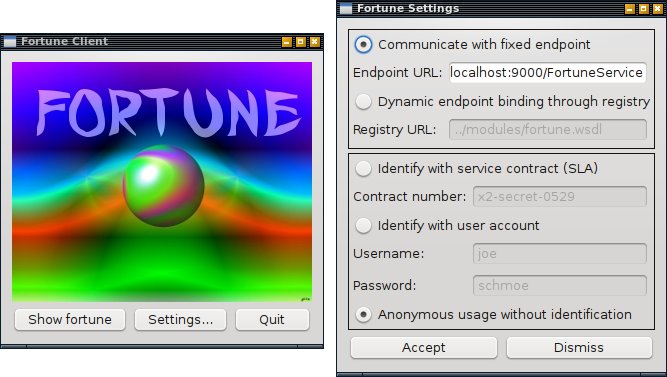Rusco makes procedural web service development with Ruby as easy as writing a single class with a single method. It relieves the service developer of server-related overhead and is an important step into packagable, distributable, self-contained services.
The project was imported into Gitorious today. It uses the power SOAP4R and WEBrick and adds a convenience container around it, featuring inotify-based hot-deployment (and undeployment) of service modules, also called soaplets.
Rusco ships with some powerful samples such as the fortune telling service. It does nothing else but invoking fortune as an external process and delivering the bright-minded citations of the past to the service user. However, it demonstrates quite nicely the late binding and authentication options available with today's web service protocols. This makes Rusco an ideal tool not just for further hacking and research, but also for the upcoming computer science lectures beginning in autumn 2009.
A Debian package with screen-wrapped daemon and all sorts of preconfigured paths and dependencies is also available, of course.
